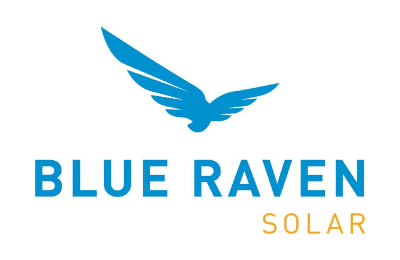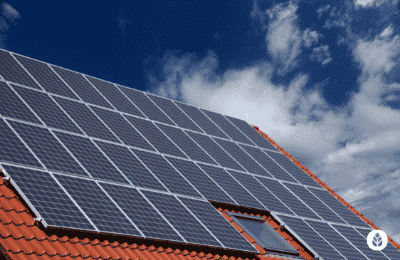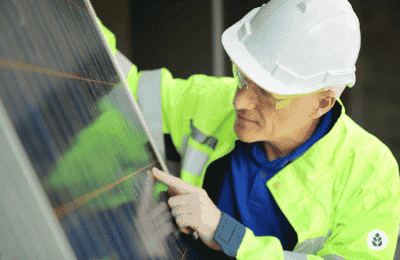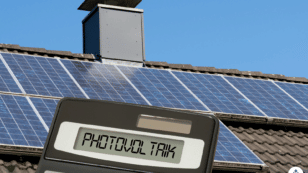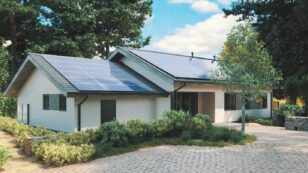
Top 5 Best Solar Companies in Kansas (2024 Reviews)
In this guide to the top solar companies in Kansas, you’ll learn:
- What are the best solar panel companies in Kansas?
- How can the installer you choose in Kansas affect how much you pay for your solar array?
- Is DIY solar panel installation an affordable option in Kansas?
What Are Kansas’s Top 5 Solar Energy Companies?
Solar adoption has been relatively slow in Kansas, although conversion rates have grown yearly over the past decade. As a result, there are only 24 solar providers that serve the state.1
While the options are limited, choosing one of these is still a time-consuming process. That’s why we dedicated time and effort to reviewing the installers for you. We think the best solar companies you can find in Kansas are:
- Blue Raven Solar: Best Solar Financing
- Zenernet Solar: Outstanding Regional Installer
- SunPower Solar: Best National Provider
- Shinnova Solar: Outstanding Regional Installer
- Astrawatt Solar: Outstanding Regional Installer
You can find more information about each of these companies below to help you decide which is right for your solar conversion and how we determined our review.

Blue Raven Solar
Pros
- Industry-leading in-house financing
- Competitive pricing
- Excellent reputation
Cons
- Doesn't offer solar batteries (coming 2022)
Blue Raven Solar is an affordable national solar provider that focuses exclusively on photovoltaic (PV) or solar panel installation. In an area like Kansas, where solar is just starting to become popular and more widely accepted, easing the financial burden of converting is crucial to keep adoption rates up.
Blue Raven keeps solar affordable and accessible by keeping prices below average and offering its BluePower Plus+ financing program. This loan program is one of the most accessible in the industry, with low interest rates, 18 months of interest-free financing and low down payment requirements. This helps to make solar more enticing overall.
Blue Raven also includes warranty coverage in line with the industry average: 25 years for equipment and ten years for workmanship.
This installer has few options available for panel brands and doesn’t offer add-ons. However, we still recommend it for homeowners and business owners looking for a good energy solution that’s affordable and simple.
You can read more about this company in our complete Blue Raven Solar review.
Facts and Figures: Blue Raven Solar
| EcoWatch Rating |
|---|
| Better Business Bureau (BBB) Rating |
| Year Founded |
| Average Cost ($-$$$$$) |
| Solar Services |
| Brands of Solar Equipment Offered |
| Warranty Coverage |
| 4.5 |
| A+ |
| 2014 |
| $$ |
| Solar Panels, System Monitoring |
| Trina Solar, Canadian Solar, SolarEdge, Silfab, SunPower |
| 25-year manufacturer warranty; 10-year workmanship warranty, 2-year production guarantee |

Zenernet Solar

Regional Service
Average cost
Pros
- Multitude of products and services
- Outstanding customer service
- Great warranty coverage
Cons
- Relatively young company
- No leases or PPAs
We chose Zenernet for Kansas homeowners for two primary reasons: it has outstanding warranty coverage and excellent customer service.
Specifically, we love Zenernet’s 25-year workmanship warranty (about 15 years longer than the average), which protects you from issues resulting from the installation labor. This is crucial in Kansas because extreme weather — like tornadoes, strong winds and intense thunderstorms — can all put your system and home at increased risk of damage, especially if the equipment isn’t installed correctly.
Zenernet Solar has offices and installation teams from coast to coast, but each office is independently operated. That means you still get hands-on service. You can trust that Zenernet will promptly respond to any warranty claim you file.
Zenernet doesn’t accept solar leases or PPAs, which means its products and services are a bit less accessible to some. However, it does keep prices below average, which is great news for everyone.
Facts and Figures: Zenernet Solar
| EcoWatch Rating |
|---|
| Better Business Bureau (BBB) Rating |
| Average Cost ($-$$$$$) |
| Solar Services |
| 4 |
| A |
| $$ |
| Solar Panels, Solar Batteries, EV Chargers, Removal & Reinstallation, Generators, Energy-Efficiency Upgrades |

Shinnova Solar
We chose Shinnova Solar as one of the best local companies for customers looking for world-class customer service and local experience.
This installer is based right in Kansas City, so it understands the local needs of KS residents and offers a personalized touch to system design and customer experience. This is hard to find elsewhere in the Sunflower State, especially given how slow solar adoption has been in the area.
Shinnova Solar keeps prices around the industry average, and it accepts cash, loans and leases to help keep solar accessible to as many property owners as possible.
Unfortunately, the company doesn’t offer the greatest warranty coverage, providing just the manufacturer’s warranty of between 10 and 25 years for the equipment. That means the warranty for workmanship is nonexistent, whereas the average workmanship coverage is for ten years.
Still, this is a great company if you’re looking for an experienced company with localized customer service.
Facts and Figures: Shinnova Solar
| EcoWatch Rating |
|---|
| Better Business Bureau (BBB) Rating |
| Average Cost ($-$$$$$) |
| 4.5 |
| A+ |
| $$$ |

Astrawatt Solar

Average cost
Pros
- Comprehensive service offerings
- Excellent reputation
- Award-winning company
- Educational, no-pressure sales approach
Cons
- Limited service area
- Relatively young company
Astrawatt seemed like an obvious pick to round out our list as another company that offers robust warranty coverage. Although it doesn’t include a warranty for panel production, it covers the equipment for 25 years — in line with the industry average — and workmanship for 25 years — 2.5x the industry average.
Again, a workmanship warranty is always a crucial factor to consider when choosing a solar provider in KS. Tornadoes, storms and above-average rainfall — around 1.5x the national average in some areas — can put a strain on any imperfections in the installation process.2
Astrawatt Solar is around average in pricing, but it offers a handful of equipment brands to help keep your costs down if you choose to prioritize price.
This company doesn’t accept leases or PPAs, which means it isn’t as widely accessible to all solar customers. However, we think its warranty coverage and customer service still make it a great option for Kansans.
Facts and Figures: Astrawatt Solar
| EcoWatch Rating |
|---|
| Better Business Bureau (BBB) Rating |
| Average Cost ($-$$$$$) |
| Solar Services |
| 4.5 |
| A+ |
| $$$$ |
| Solar Panels, Solar Batteries, EV Chargers |
Watch Below: Learn How Kansas City’s Plan for the Nation’s Largest Solar Array Will Affect You
How Can You Save Money When Hiring A Solar Company In Kansas
The average cost of converting to solar in KS is around $28,800 before incentives, which is right in line with the national average. Although the pricing is on par with most other states, paying over $28,000 to convert to solar is still not possible or justifiable for many homeowners looking to adopt clean energy.
Thankfully, there are some ways to save money as you search for an installer to tackle your project. These include:
- Taking advantage of as many solar incentives as you can
- Ensuring you get good warranty coverage
- Getting a few quotes
We’ll explain these money-saving tips in greater depth below.
Take All of the Solar Incentives You Can
Most states and the federal government provide perks to incentivize homeowners to convert to solar power, which usually seek to reduce the financial burden of converting to solar. These can effectively bring down your conversion cost by thousands of dollars.
In fact, most solar customers in KS end up with savings that pay for their systems and save even more money over time. The table below includes a list of all of the available Kansas solar incentives you can take advantage of.
| Solar Benefit Program | Brief Description |
| Federal Solar Investment Tax Credit (ITC) | The federal tax credit is the most substantial incentive, as it effectively reduces the cost of solar panels in KS by an average of $8,640. It’s a credit applied to the money you owe on your income tax bill for 30% of your system value — including panels, batteries and inverters. Keep in mind that this isn’t a rebate, and you can only take this credit if you owe money when filing your taxes. |
| Renewable Energy Property Tax Exemption | In an effort to reduce the downside of converting to solar energy, KS exempts the tax value your system adds to your property when assessing your taxes. That means your property taxes won’t go up because of your solar energy system. |
| Net Metering | This is another crucial policy that maximizes your long-term energy savings. It’s mandated for all investor-owned utilities (IOUs) in KS and requires that they “buy back” any excess energy you send to the grid. Those credits can be put toward future bills. That means months of overproduction can offset your future utility bills during months of underproduction. The rate at which you’re credited for each kilowatt-hour (kWh) varies among utility companies. |
Make Sure You Get Solid Warranty Coverage
Another great way to save money in the long run in Kansas is to choose an installer with a robust solar warranty package. Specifically, physical protection for your equipment is crucial in KS.
We specifically recommend choosing a company with a performance guarantee of some kind as part of its warranty. These agreements add a clause to your contract stating that you will see the savings outlined to you in your proposal, or the company will cover the difference.
While it might cost a bit more initially for a solid warranty, it’s worth the peace of mind. Plus, if your system ever underproduces or experiences issues, you’ll likely save money by having a warranty in place.
Get a Few Different Quotes for Your System
Finally, we suggest getting a few quotes for your solar project. There are just under 20 installers that service KS, and each and every one of them will likely quote a different amount for your system. The variances come from differences in labor costs, equipment costs and warranty packages.
We recommend getting three to four free quotes from companies in your area and then comparing them based on cost and the value and warranty coverage provided. This can help you save hundreds or even thousands of dollars and still get the system you need.
Still curious about what your system will cost and how much it will save you over time? You can use our solar calculator to see an estimated system total and your expected savings.
Will Solar Increase Your Home Value In Kansas?
Yes, installing solar panels on your property will increase the value of your home in Kansas. Estimates from research conducted by Zillow suggest that homes with solar systems are around 4.1% more valuable.3
Assuming that’s true, Kansas homeowners can expect to boost their home value by an average of $8,805.4 This is a huge upside of converting to solar, especially since the property tax exemption in the state prevents that bump in value from negatively affecting your taxes.
Property value increases are expected to be a bit higher in cities, mostly due to the above-average property values in those areas.
Additionally, Kansas City has been one of the most aggressive adopters of solar power. Solar panels and solar roof shingles are more widely accepted there, so the value bump will likely be more substantial within the city, providing a greater return on investment.
Should Kansas Residents Hire a Professional Solar Installer Or DIY?
Generally speaking, we recommend against DIY solar system installation in Kansas.
Although the cost to go solar in Kansas is below average, it’s still prohibitively expensive for many people to pay for upfront. One solution many homeowners turn to is DIY solar, which is often about half as expensive as a professional installation — closer to $15,000 as opposed to $30,000.
Unfortunately, Kansas isn’t a great place to carry out a DIY solar panel installation for a few reasons, including:
- The warranty coverage for DIY panels isn’t nearly as appealing
- The panel efficiency is almost never as good with DIY panel kits
- DIY installations come with an increased risk of property damage
We’ll explain these downsides in the sections below.
Warranty Coverage for DIY Panels Isn’t as Good
First and foremost, DIY panels usually include less appealing warranty coverage. The average warranties for DIY panels are as follows:
- 10 years for equipment
- 5 to 10 years for efficiency
- No warranty for workmanship
Most concerning in KS are the 10-year equipment warranty and the lack of a warranty for the installation.
Tornadoes and severe thunderstorms put your system and roof at an elevated risk of damage, so having a lengthy equipment warranty is vital for maintaining peace of mind and avoiding repair and replacement costs over time. A professional installation may cost twice as much, but you also get protection for your equipment for twice as long.
Plus, having no coverage for the workmanship means any mistakes made during the process — which are more common with inexperienced DIYers doing the work — increase the risk of panels getting damaged or pulled off your roof in Kansas’s tornadoes. The industry standard 10-year warranty for workmanship provides some protection against this risk.
Panel Efficiency Is Lower With DIY Panels
Next, DIY panels usually have an efficiency rating between 15% and 20%, and some are even lower. Lower efficiency ratings mean your panels make less effective use of the available sunlight. On the other hand, professionally installed panels often sit above 20% and reach up to nearly 23%.
Although the difference in efficiency may seem minimal, those few percentage points can make a world of difference in the actual energy production numbers. In an area like Kansas, where net energy metering is available but doesn’t credit you for energy at the full retail rate, solar panels with higher efficiency ratings are superior and mean more savings in the long run.
DIY Installations Increase Your Risk of Property Damage in Kansas
Finally, inexperienced DIYers are far more likely to make mistakes during the at-home installation than a professional installer with years of experience behind them. While this is always an issue, it’s a severe risk in Kansas, specifically.
The tornado activity in Kansas puts all panels at risk of damage, but that’s especially true for DIY installations that are done incorrectly. Professionally-installed panels can usually withstand the winds created by Kansas tornadoes, but any mistakes made during the process by DIYers make issues more and more likely.
You might pay more to have a professional install your solar array, but you could end up saving money over time by avoiding costly panel issues and property damage.
What Should Kansans Look For In a Solar Installer?
Kansas residents have some specific needs that need to be met by solar providers in order to have the best experience possible when converting to solar. Below are a few things we recommend prioritizing when looking for a solar installation company in KS:
- Warranty coverage
- Experience
- High-quality panel brands
We’ll explain why we believe these factors are important in Kansas below.
Robust Warranty Coverage
First, and as we’ve mentioned, we suggest choosing a company that provides lengthy and comprehensive warranty coverage.
It’s usually a good idea to look for an efficiency warranty, which guarantees that your panels won’t fall below a specific efficiency rating for the given amount of time. Efficiency warranties are great in Kansas because they ensure that your panels will continue producing and offsetting your energy bills, which is helpful due to the below-average net metering policy.
Experience
Next, we recommend looking at a company’s experience level in the solar industry and in Kansas, specifically.
Installers with more experience are less likely to make mistakes when putting in and connecting your panels. This is always important, but it’s especially crucial in KS, where tornadoes can place immense strain on the integrity of your installation. While solar panels withstand severe weather conditions very well, the racking and structure of your array can also incur damage if installed incorrectly.
Additionally, with solar finally becoming more popular in KS, many installers pop up to take advantage of the demand before inevitably going out of business. Companies with at least five years in the industry are more likely to stick around for the long haul, which means your warranties will stay intact.
Panel Brands Offered
Finally, we suggest prioritizing companies that offer high-quality and high-efficiency solar panels. More efficient panels will often be a bit more expensive, but they tend to save you more in the long run in energy savings. Despite average electricity rates, this is especially true in areas like Kansas, where the net entering policy isn’t ideal.
Some of the best solar panel brands that provide above-average efficiency and work well for most KS solar customers include:
- SunPower/Maxeon
- REC
- Mission Solar
- Canadian Solar
- Qcells
- Silfab
Methodology: How We Ranked Kansas’s Solar Companies
Our goal in providing these solar reviews for providers in KS is to promote clean energy while providing readers like you with the company that’s best fit to provide a system that saves money. Keeping that in mind, we’ve ranked the solar installers that operate in the Sunflower State based on the below criteria:
- Solar Warranty & Customer Support (20%)
- Experience (20%)
- Cost and Payment Options (20%)
- Solar Services (10%)
- Qualifications, Reputation & Certifications (10%)
- Availability (10%)
- Environmental, Social and Corporate Governance Factors (10%)
Our methodology is never affected by commercial partnerships, so you can always trust that the information we provide is unbiased and is geared toward helping you save. We’ll explain how we rank companies based on each of these factors below.
Solar Warranty & Customer Support
First off, we look at each company’s warranty coverage and assign a score based on how they cover equipment, panel efficiency and workmanship. These are crucial in KS because they keep your system protected and running as advertised for 25 years,. maximizing your long-term energy savings.
The industry standard we look for includes 25 years of coverage for the equipment, 20 to 25 years of coverage for the panel efficiency and ten years of coverage for the workmanship. Any warranties above and beyond these averages lead to a company scoring higher and moving up in our rankings.
Experience in Kansas
Experienced companies are less likely to make mistakes — which can lead to property damage, especially during tornado season — and are also more likely to provide a system that is tuned to meet your needs in KS. Plus, more established companies are less likely to go out of business and void your warranties.
Companies that have at least five years of experience get an average score here, while companies with ten or more years get a perfect score.
Cost and Payment Options
Next, we look at the average price charged by each installer for a typical system, as well as the payment options made available to solar customers.
The solar adoption rate has been unusually slow in KS, and the upfront cost is undoubtedly a big part of why so few people make the switch. Companies that keep costs below average rank a bit higher because they keep solar more accessible.
Similarly, we look for companies that accept a variety of payment options, including:
- Cash purchases
- Solar loans — with in-house financing options being a bit better
- Solar leases
- Power purchase agreements (PPAs)
Companies that offer in-house financing with low interest rates and flexible down payment requirements rank highest because they help customers access solar at the pace that works best for them.
Solar Services
We consider the solar services provided by companies next, as more services provided means the company will appeal to more of our readers.
Those that install panels and batteries and provide energy efficiency audits score a perfect score in this category. Batteries are a focus, specifically, because they help make the most of your solar energy in areas like KS, where the net metering program isn’t ideal.
We also give bonus points to full-service companies that offer unique services, like off-grid solar, solar water heater installations, solar monitoring and more.
Companies like Blue Raven that only offer panel installations score lower in this category because they’ll naturally appeal to fewer property owners.
Qualifications, Reputation & Certifications
Next, we consider the qualifications and overall reputation of each company. We assess how qualified a company is by looking for a few things, including:
- Years of experience
- Certification from the North American Board of Certified Energy Practitioners (NABCEP)
- Accreditation from the Better Business Bureau (BBB)
- Certification from Leadership in Energy and Environmental Design (LEED)
- Certification from the Building Performance Institute (BPI)
- Electrician licensing
- General contractor licensing
We also gauge each company’s reputation by reading through dozens of customer reviews, ensuring a minimum of 4 stars on Google reviews, and checking for customer complaints on BBB.
Availability
Since solar has yet to become widely popular in KS, many companies choose to focus on a single major city — like Kansas City — where demand is highest. Since this means fewer customers will fall within the company’s service area, we rank companies that don’t serve the entire state a bit lower.
Environmental, Social & Corporate Governance Factors
Finally, we look at how each company affects the environment as a whole and the community it serves. Some things we consider include:
- A company’s willingness to reduce its own carbon footprint and maintain sustainable business practices
- Its attention to end-of-life products and recycling old solar equipment
- Membership with the Green Building Council or other pro-environment organizations
We also consider how a company gives back to its community through charitable donations, solar education programs or alignment with organizations that make solar accessible to all, including low-income households.
Read More About Going Solar In Kansas
- Is Solar Worth It in Kansas?
- Kansas Solar Incentives Guide
- Find Cost Savings on Solar Panels in Kansas
The cost information presented in this article is derived from a comprehensive analysis, incorporating data from multiple industry sources. The average cost per watt per state was calculated based on figures from Consumer Affairs, Energy Sage, and Berkeley Lab’s Electricity Markets & Policy Department. Additionally, monthly energy consumption and the average monthly cost of electricity were sourced from the U.S. Energy Information Administration, ensuring a well-rounded and accurate representation of the information presented.
FAQ: Best Solar Companies in Kansas
Below, we’ll answer some of the questions we get most often from Kansans looking to hire the the best solar company for their needs.
Most Kansas residents believe that the physical protection a company offers is the most crucial factor to consider when choosing an installer. The extreme weather in Kansas can damage panels and other solar equipment, and having a lengthy, 25-year warranty on your system will guarantee that it continues to perform and save you money on your electric bills for decades.
Other important factors include the panel brands offered, the overall price, the quality of the equipment for the price and the number of services provided by the company.
If you’re looking for the most affordable solar system installer in Kansas, you’ll, unfortunately, need to get customized free quotes from each provider in your area. Companies differ quite a bit in pricing from job to job, even for similar equipment and setups. You’ll need personalized measurements and estimates from each company before you can compare based on the value of the equipment.
An easier way to go about this is to use our EcoWatch rating. Identifying the best company that still fits in your budget using our ratings is a better and less time-consuming option than contacting multiple companies for estimates.
Data from the Solar Energy Industries Association (SEIA) suggests that there are 50 solar companies in Kansas.5 Of these 45 companies, only 24 of them handle residential installations.
Some readers will undoubtedly be surprised not to see some of the more popular brands appear in our rankings. We intentionally chose to leave some companies out based on poor customer service specifically in Kansas, ongoing lawsuits with customers, or other risk factors. The companies we kept out of our rankings include Vivint Solar and Titan Solar Power.
Related articles
Top Solar Installers in Kansas Cities
Comparing authorized solar partners
-
- Industry-leading in-house financing
- Competitive pricing
- Excellent reputation
- Doesn't offer solar batteries (coming 2022)
A+Best Solar Financing2014Trina Solar, Canadian Solar, SolarEdge, Silfab, SunPower25-year manufacturer warranty; 10-year workmanship warranty, 2-year production guarantee
Having trouble deciding? Click below and use our process to receive multiple quotes instead:

 233k
233k  41k
41k 
